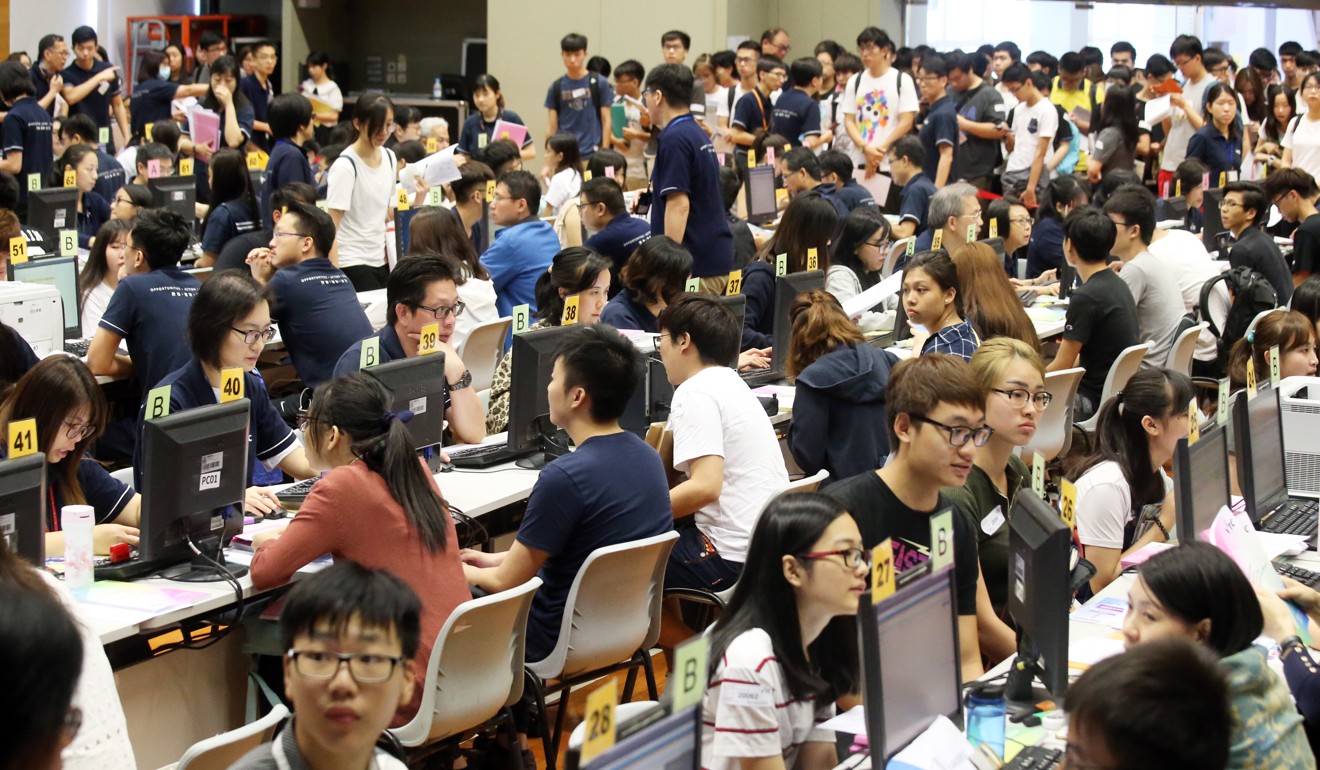
Three in five Hong Kong secondary schools support lowering English and Chinese language requirements for university admission
Current university entrance exam, the DSE, requires a minimum of level three in both languages, but Hong Kong Association of the Heads of Secondary Schools says a less strict approach would improve the diversity of local talent
Three out of five Hong Kong secondary schools support lowering the minimum Chinese and English language requirements for university admissions, a survey has found.
The survey of 125 school principals, conducted by the Hong Kong Association of the Heads of Secondary Schools between May and last month, also showed that 85 per cent of respondents “agreed” or “quite agreed” with suggestions to increase the number of publicly funded undergraduate degrees.
The findings were released after Professor Anthony Cheung Bing-leung, chairman of a task force to review self-financing post-secondary education programmes, said last month the city was facing a shrinking student population.
Because of the shrinking birth rate over the years, only 43,000 secondary school leavers are expected in four years, down from 57,000 in 2016.

“Society needs a diversity of talent, not just people with good languages,” the association’s chairwoman Lee Suet-ying said.
At present, the Hong Kong Diploma of Secondary Education (DSE), the university entrance exam, requires a minimum of level three in both Chinese and English languages, level two in mathematics and liberal studies, and level two for one other elective to enter university.
The DSE is a seven-level grading scale, with one being the lowest grade and 5** being the highest.
In the survey, 62 per cent of respondents supported lowering the language requirements. Of those, 37 per cent supported lowering the requirements for the Chinese and English language exams to level two only, as long as students receive a total of at least 10 points in the four core subjects and a level two in an elective.
Society needs a diversity of talent, not just people with good languages
Meanwhile, 25 per cent supported pupils only needing to obtain a level two in all four core subjects, in addition to a level two in an elective, to be admitted into universities.
The survey found that 21 per cent supported keeping the entrance requirements unchanged, while 17 per cent picked “others”, such as making liberal studies an elective.
Of the 125 principals polled, only one said the entrance requirements should become harsher.
The association’s Lee said that while proficiency in languages was important, pupils who are relatively poor in languages but excel in other subjects should be given the chance to pursue tertiary education.
The study also found only 11 per cent “disagreed” or “quite disagreed” with the suggestions to increase the number of publicly funded undergraduate programmes.
Hong Kong students choosing sub-degree courses are not ‘losers’, but realists
Lee said the association’s demands were justified, despite Cheung’s remarks on a shrinking workforce because the student population “will not always be at the bottom”.
Ahead of the release of DSE results on Wednesday, the city’s No 2 official Matthew Cheung Kin-chung wrote in his blog on Sunday it was a “misunderstanding” that some parents and pupils thought vocational education programmes were inferior to traditional programmes offered by universities.
Cheung said 48 per cent of the 50,600 secondary school graduates could enter degree programmes. Taking associate degree programmes together, more than 70 per cent of them could enrol in tertiary education programmes, he added.


